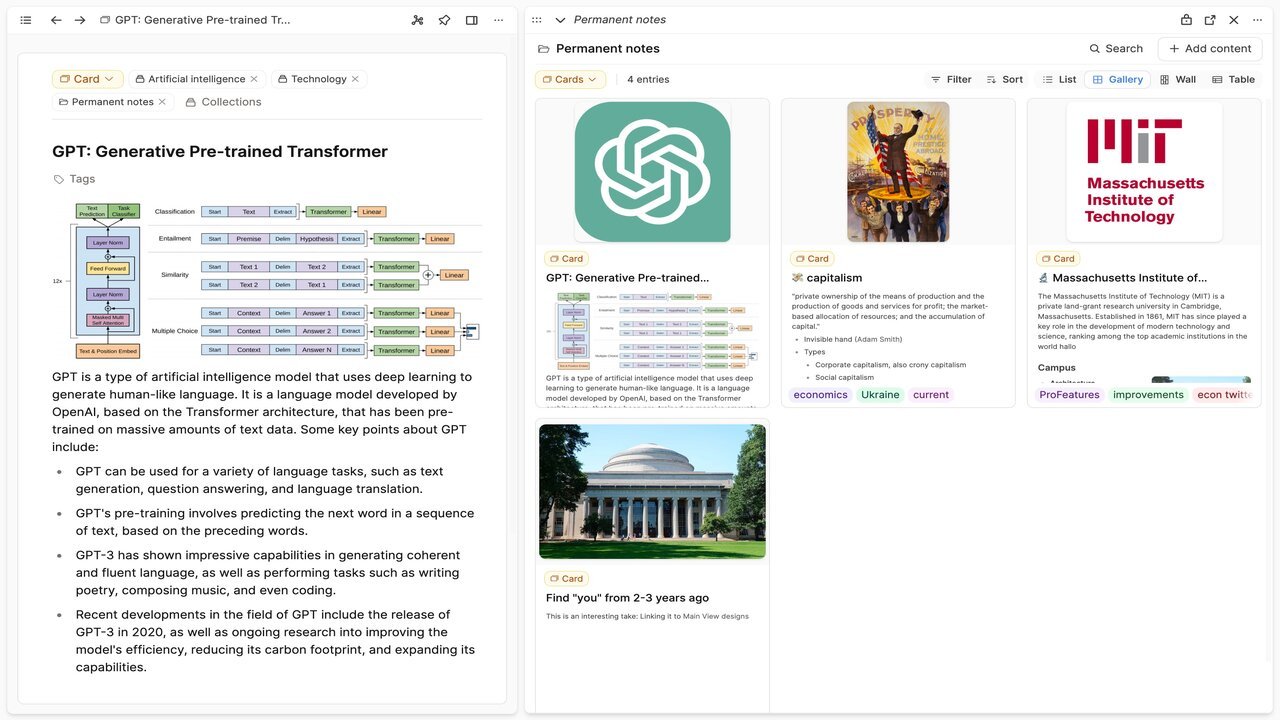If you're undertaking a task that involves planning — whether it's studying, writing, event management or something altogether, you get stuck across a mismatch of tools.
Research for a deep dive article for me might include, for example, a Trello board, Notion, Evernote, Raindrop.io, and links to various social media channels, charts, screenshots, and other ephemera all in some kind of organised chaos that works but is not exactly user-friendly and can be laborious to search.
German startup Capacities offers an accessible, user-centric interface for people to generate value from all the information that surrounds them.
It launched its public beta in January 2022 and has since been under rapid development.
I spoke to its co-founders, Michael von Hohnhorst and Steffen Bleher, to learn all about it.
Bleher shared that the idea started at University, recalling his time studying electronic engineering:
"We were learning all this new technology, such as programming and the internet. But at the same time, we were using a pen and paper, and the Professor was printing articles for us to read.
This discrepancy was so huge that we started thinking about how to build a better digital medium to connect, relate, and structure information in multiple dimensions and in ways that are not possible with traditional approaches."
Von Hohnhorst likens it to a "calm space of digital content relevant to you. Folders are replaced with flexible tags and bi-directional linking between content. So you don't have to think about what folder to put things in, just think about what they relate to."
Instead of files, content and media are organised as colourful objects.
You can determine the objects you want, from books to ideas. And then simply link or embed them anywhere you need them.

He explained:
"Think of Notion databases, but less containerised and more flexible. We call this "objective-taking."
Objects can also be shared and projects collaborative with others, such as during meetings."

One thing that makes Capacities stand out is that it not only released a product fast. It also has gathered a globally engaged community —cthe company has future plans to offer automated translations — that offers feedback to create a better, improved version.
Bleher shared, "The community is like our first employee because we're working together, in discussion and brainstorms. I never would have expected people would send page-long feedback. It works really, really well."

Von Hohnhorst shared that the users are not only concentrated in tech:
"We have a Polish composer using the tool, and high school students, but also retired seniors. People tell us, 'I'm starting to forget some things, and this is a game-changing to help me structure my information.'"
Also on the agenda is the integration of AI models. Imagine ChatGPT using your own content so you can ask your knowledge base for questions, suggestions, and summaries in natural language based on your collected knowledge.



Would you like to write the first comment?
Login to post comments